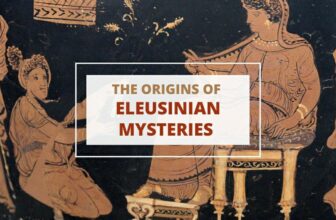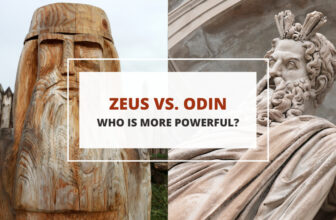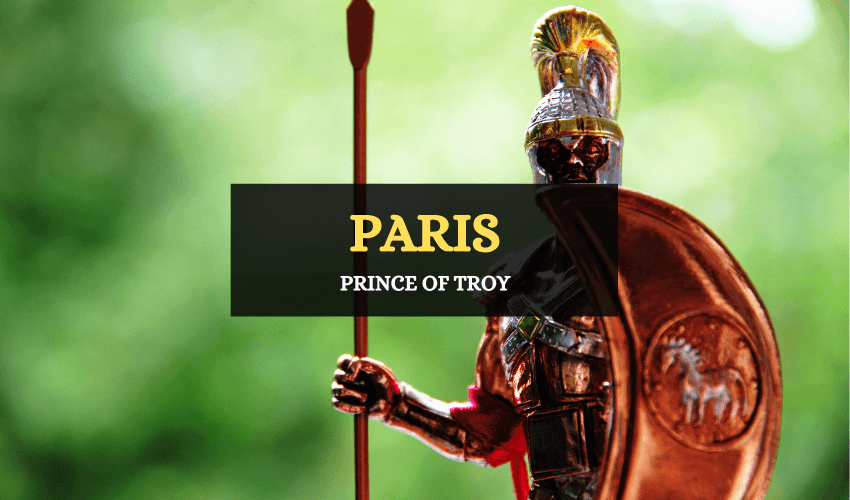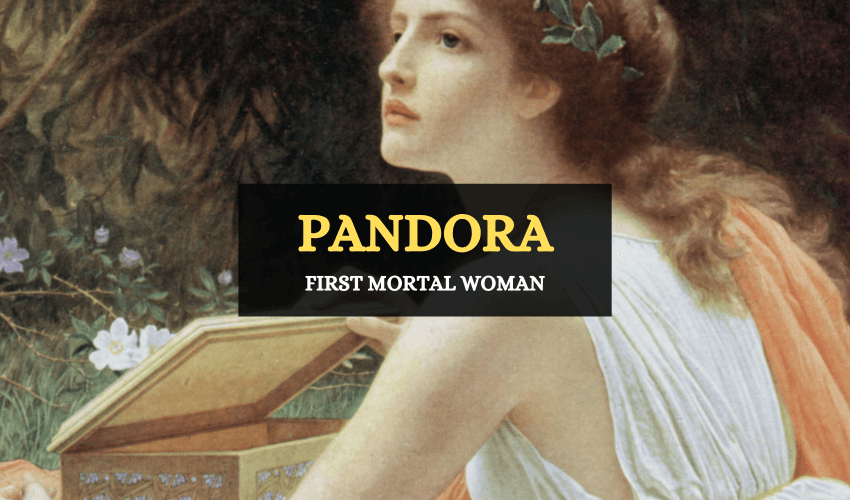
Table of Contents
To the Christians, it was Eve, but to the Greeks, the first woman to ever exist was Pandora. According to the myths, the gods crafted Pandora to bring doom into the world. Here’s a closer look at her story.
The Creation of Pandora
Pandora’s story begins with the story of another famous Greek mythological figure – Prometheus. When Prometheus stole the gift of fire from Mount Olympus and shared it with humanity, he angered the gods with his defiance. Zeus then decided to give another gift to humanity, one that would punish and torment them, who would be beautiful but full of guile and deceit.
To this end, Zeus commanded Hephaestus, the god of fire and crafts, to create the first woman to ever exist using clay and water. Hephaestus obliged and crafted a beautiful being who later received gifts from all the gods. In some accounts, Athena breathed life into Pandora after Hephaestus created her. She was so beautiful and awe-inspiring that the gods were impressed by her.
Pandora’s Gifts from the Olympians
In Ancient Greek, the name Pandora stands for all the gifts. This is because each of the Olympian gods gave Pandora certain gifts to complete her.

According to the myths, Athena taught her crafts like needlework and weaving and dressed her in a silver gown. Aphrodite taught her the arts of seduction and also how to create desire. Hephaestus gave her a golden crown, and the Graces adorned her with all kinds of jewelry. Hermes gave her the gift of language and the ability to use words to lie and deceive. Zeus gave her the gift of curiosity.
The last gift Pandora received was a closed vase that contained all sorts of plagues and evils. The gods told her never to open the vase, often mistranslated as box, and after that, she was ready to go and fulfill her role in the world. So, Pandora went froth into to the world with her box of evils, without knowing what was in it.
Pandora and Epimetheus

Zeus’ plan consisted of sending Pandora to enamor Epimetheus, who was Prometheus’ brother. Guided by Hermes, Pandora reached Epimetheus, who upon seeing the beautiful woman, fell in love with her. Prometheus had advised his brother not to accept any gift from the gods, but the gifted Pandora was too beautiful for him to reject. He welcomed her into his house, and they married. Epimetheus and Pandora had one child called Pyrrha.
One day, Pandora could not contain her curiosity any longer and opened the lid of the vase. From within it, all the evils Zeus and the other gods had packed in came out, including war, toil, vice, and sickness. When Pandora realized what she had done, she hurried to put the lid back on, but it was already too late. By the time she could put the lid back on, only one small sprite remained within, known as Hope.
In Greek mythology, the opening of the vase and the unleashing of the evils on earth represented not only Zeus’ vengeance but also Zeus’ balancing for the fire. According to Zeus, the fire was such a high blessing that humanity did not deserve it. The opening of the vase brought back the division between men and gods. It also was the end of the Golden Age of humanity when there was no trouble or worry on earth. From here, humanity entered the Silver Age.
Pandora’s Box
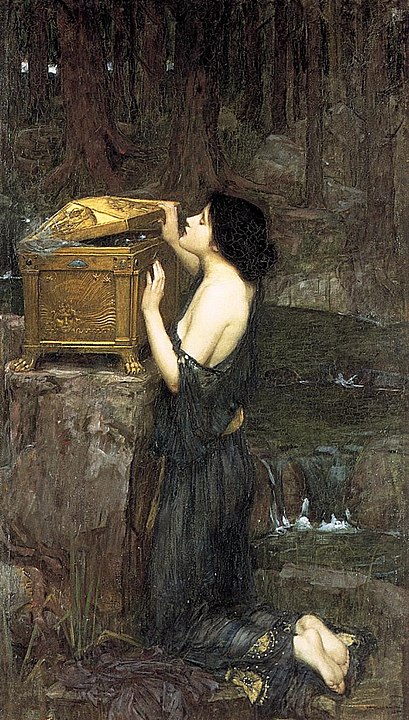
In the 16th century, the vessel of the story morphed into a box. This could have been the outcome of a mistranslation or confusion with other myths. From then onwards, Pandora’s box would become a notable item in mystical writings. Pandora’s box became a symbol of the curiosity of humanity and of the necessity to delve into the mysteries that surround humanity.
Hope Inside the Jar
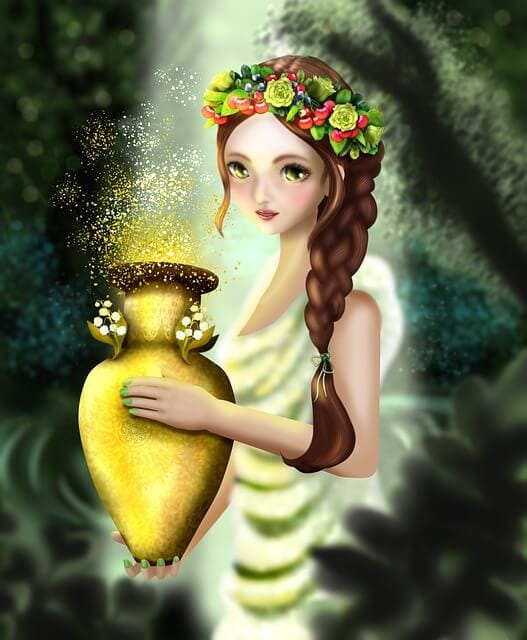
Pandora’s jar was full of evils, but it’s noteworthy that the gods had also put in hope inside of it. Hope was meant to mitigate the problems and the suffering of the people and ease their pain with all the new calamities in the world. To some writers, however, hope was nothing but another evil. Friedrich Nietzsche proposed that hope was the worst of the evils Zeus sent to earth since it prolonged human suffering, filling them with false expectations.
Pandora’s Influence
As the first woman to ever exist in Greek mythology, Pandora is the ancestor of all humankind. Her daughter Pyrrha would marry and repopulate the earth after a terrible flood. Pandora’s gifts represent many of the traits of humans, and without her, humanity would have a completely different character.
Besides her roles as human ancestor, Pandora caused much of the evil on earth with her curiosity. Before Pandora, people lived in the Golden Age of Greek mythology, an era in which there was no conflict, no sickness, no suffering and no war. The opening of the vase would set about the beginning of the world as we know it.
Pandora’s Box as a symbol and a concept has transcended Greek mythology to become an influential part of pop culture. Pandora’s Box played a central role in one of the books of Rick Riordan’s saga Percy Jackson and the Olympians and is an essential part of the plot of one of Lara Croft’s movie adaptations.
Today the term Pandora’s box is used as a metaphor for beginning a process which sets of a series of complicated problems.
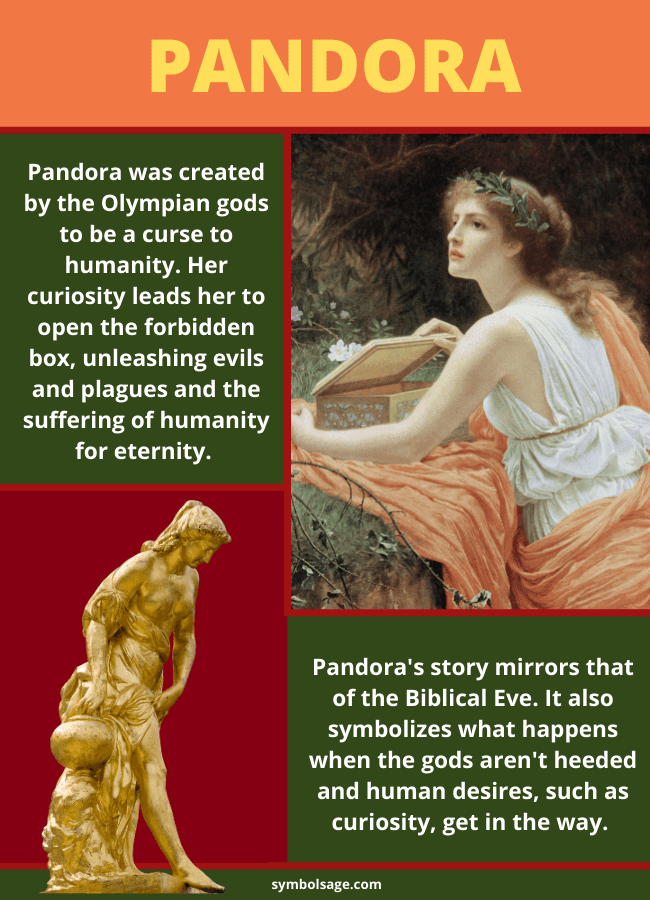
Pandora and Eve
There are many similarities between the story of Pandora and that of Eve of the Bible. Both were the first women, and both are blamed for destroying paradise and bringing misfortune and suffering on all humanity. Many scholars have investigated whether these two stories are related in some way and have concluded that there may have been a common source that inspired both stories.
Wrapping Up
Pandora was an influential part of Greek mythology due to her effect on the earth and due to the ending of the Golden Age with Zeus’ evils. In Greek mythology, the first woman to ever existed was custom-made with all the traits that would characterize humanity from then onwards. One of humanity’s primary characteristics is curiosity, and we have Pandora to thank for it.




